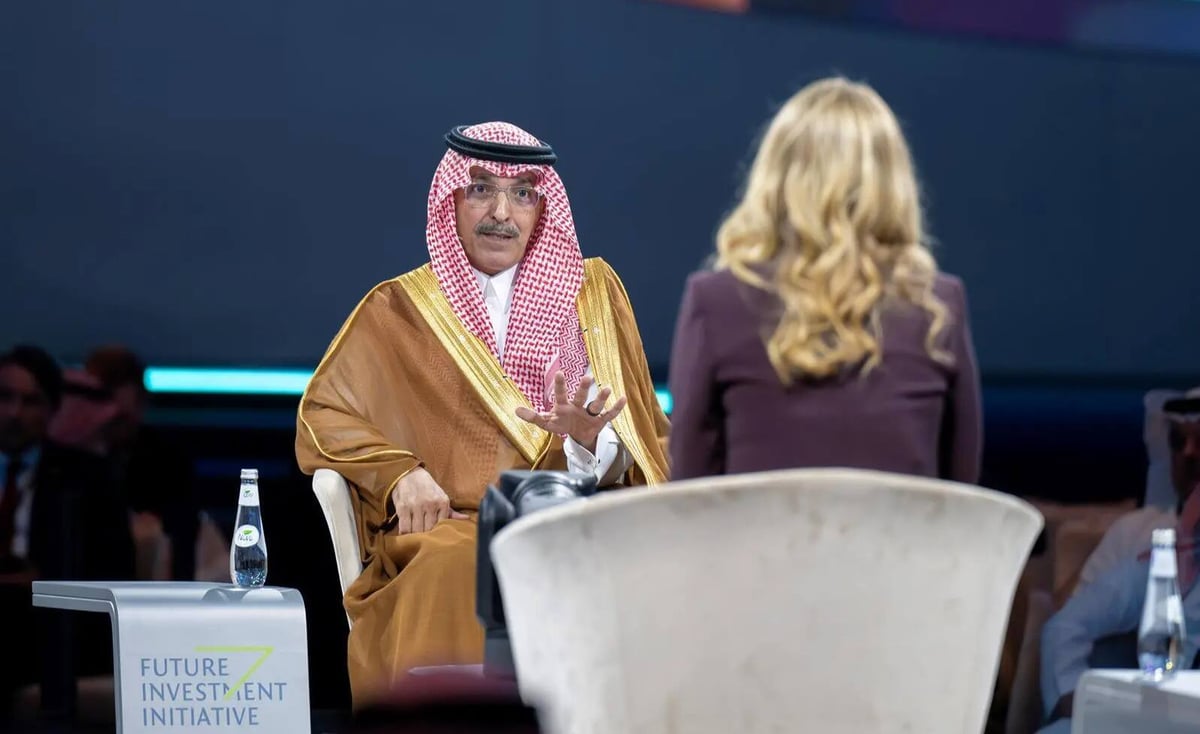The Saudi Minister of Finance, Mohammed Aljadaan, has emphasized that non-oil GDP now constitutes 52 percent of the Saudi economy, showcasing significant progress in diversifying economic activities. He made this statement during a plenary session titled “How Will Finance Manage Risk in a Fractured World?” at the 8th edition of the Future Investment Initiative (FII8) Conference, which is taking place in Riyadh until October 31.
Aljadaan noted that inflation is currently under control and generally on the decline worldwide. He also pointed out that global trade continues to expand, despite facing various challenges. His observations reflect a broader understanding of the current economic landscape and the resilience of international markets.
Investor expectations and private sector support
During his address, Aljadaan remarked that investors are in search of promising returns and leadership capable of making tough decisions. He stressed the importance of creating an environment where the private sector is bolstered and supported through clear consultations and adaptable, comprehensive regulatory frameworks.
Achievements of Vision 2030
Highlighting the achievements of Vision 2030, Aljadaan mentioned that women’s participation in the workforce has reached 35 percent, exceeding the vision’s target of 30 percent. He also revealed that the unemployment rate in the Kingdom stands at a low 7.1 percent. Furthermore, he noted that the number of small and medium enterprises led by women has doubled over the past seven years, illustrating the positive impact of these initiatives on economic empowerment.
Growth in tourism sector
Aljadaan praised the tourism sector for exceeding expectations, with over 100 million tourists expected by the end of 2023. Aljadaan stressed that the Kingdom plays a crucial role in maintaining stability both regionally and globally, collaborating with international partners to uphold this essential aspect. He further affirmed that this is a key reason why investors are keen to engage in the national transformation.
Financial stability as priority
Aljadaan highlighted that the primary goal of the Ministry of Finance is to ensure the financial and economic stability of the nation. This objective serves to attract investors, particularly when they observe a state that maintains significant reserves and practices fiscal discipline.
Focus on geoeconomics
The FII8 conference, which focuses on geoeconomics, emphasizes the vital importance of investing in economies, supporting developmental projects, and creating strong legal frameworks that appeal to international investors, all while leveraging technology to promote growth and prosperity.
Importance of banking and technology
Conference participants also underscored the significance of the banking sector and reserve funds, emphasizing the need for advanced technologies and competitive salaries to attract and retain talent. They noted that financial technology is crucial for enhancing the profitability and efficiency of businesses and banks in the context of rapid technological advancements.
Expanding strategic partnerships
Twelve international companies have recently joined the FII Institute’s network of strategic partners. These new additions contribute to an expanding coalition of leaders from various sectors, including business, technology, aviation, energy, academia, and public policy, all committed to promoting a sustainable and equitable future.
Year-round initiatives and engagement
The FII Institute runs a continuous program throughout the year that includes global initiatives, international summits, policy development, global surveys, and indices. Strategic partners play a vital role in this initiative by providing leadership, delegates, and participating in various activities. The twelve new strategic partners include ACWA Power, ALAT, Claure Group, Franklin Templeton, King Salman International Airport, Minerva Foods, NBK, Premium Residency Center, Riyadh Air, and SCAI.
Commitment to positive impact
Richard Attias, CEO of the FII Institute, remarked that the partners are integral to the mission of the FII Institute, which aims to create a positive impact on humanity. He noted that as the network expands, it is uniting a global force for positive change and fostering impactful initiatives.
Launch of venture program
Additionally, the FII Institute introduced General Atlantic and Lakestar as its inaugural venture program partners. These partners are leading firms set to play a significant role in the upcoming FII8 Investment Day. The program aims to connect entrepreneurs and distinguished leaders in innovation, investment, business, and education to collaboratively address global challenges related to AI, robotics, sustainability, health, and education.
Collaborating for a sustainable future
The twelve new partners join an established group of strategic partners, including the founding partner, the Public Investment Fund (PIF) of Saudi Arabia. They also collaborate with vision partners such as the Ministry of Investment of Saudi Arabia, Aramco, Diriyah, Emaar, GFH, HSBC, KAFD, Ma’aden, NEOM, New Murabba, Red Sea Global, Riyad Bank, ROSHN, the Royal Commission for AlUla, SABIC, Sanabil Investments, SNB, SoftBank Vision Fund, Standard Chartered, State Street, stc, THIQAH, and Vision Invest.
For more economy news, click here.








